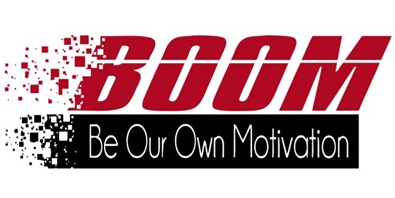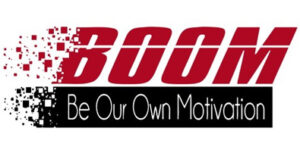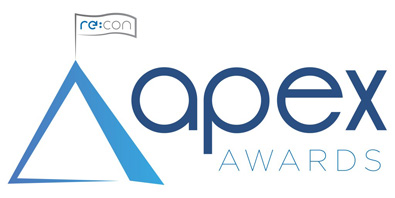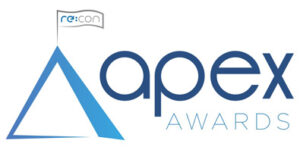RE:CON 2024
PRESENTATIONS
Sessions and Presentations Files for
This Year’s re:con
Please be patient as we upload presentation files
Accessibly Sexy: Neurodivergence & Sexual Empowerment
PRESENTED BY: River Kratochvil
1 Hour
This presentation aims to equip participants with the information and tools necessary to incorporate sexual freedom and health into their work with the disabled community. We will explore the intersection of disability, ableism, and sexuality, providing a comprehensive overview of the various types of disabilities and the impact of ableism on sexual health and relationships. Attendees will learn practical accommodations and strategies to support the sexual well-being of people with disabilities. The session is designed to promote understanding, challenge ableist attitudes, and empower advocates, providers, educators, and consumers to foster inclusive and respectful environments.
Apps, Devices, and AI in Behavioral Health
PRESENTED BY: Norman G DeLisle Jr
1 Hour
The presentation will cover an updated look at apps to support Emotional Self-Regulation, Executive Function, and Personal Safety. We will discuss the growing use of neuromodulation devices, as well. We will also overview AI tools with recommendations for use cases for both staff and people receiving services, as well as the expanding use of AI as a tool and accommodation by people with disabilities.
Building our New Normal: One Sensory Room At A Time
PRESENTED BY: Maya Hammond, Lara Hammond, Kellie Blackwell
1 Hour
My session would have three potential main focal points depending on what your audience would appreciate the most. The first focal point is my groundbreaking research on a novel biomarker and treatment to restore neurotypical brain development. The second potential topic would be the importance of sensory rooms and other sensory environments and the initiatives we can take to improve their availability. The third potential talk could be on the significance of youth philanthropy, sharing the story of our nonprofit and inspiring youth to start their initiatives, nonprofits, or even businesses.
Career Pathways in Action at Peckham
PRESENTED BY: Sarah Velez, TBD
1 Hour
Peckham is developing a method for our team members to understand what skills will be needed for them to qualify for the next job opportunity in their career pathway. The pathways have been aligned and the skills gaps have been identified. Now we move the work into our TMS in the form of the Journeys platform in Workday. Each Journey will show the team member what trainings, job shadows, and other actions must be completed to prepare for that next job opportunity. Once the team member takes on the new role, they will be aligned with the Journey that will tell them what competencies to develop in order to achieve proficiency in their new role. We are creating a career ladder with very intentional rungs that are clearly defined and achievable. We are also creating the content to support the competency development to support their journeys. We are also partnering with community partners to remove language barriers and support team members toward college readiness, if that aligns with their personal goals. Along the way, they have the support of their leadership, their human services specialist, and the talent development specialist. This is a huge project that we have amazing organizational support for.
Collaborating on Transition
PRESENTED BY: Karen Wang
2 Hour
Transition is the individualized action plan which addresses the skills, programs, and opportunities necessary for youth with disabilities to be successful after exiting school. Requirements for transition planning in the Individualized Education Program (IEP) are outlined in the Individuals with Disabilities Education Act (IDEA), and the planning process calls for both youth participation and interagency collaboration. This workshop will detail the IEP transition planning process, and the roles and responsibilities of collaborating stakeholders (youth, families, school team, agency representatives).
Customized Employment Michigan Update- Future Planning
PRESENTED BY: Russell Sickles
1 Hour
As the State of Michigan prepares to launch Customized Employment (CE) in Winter 2025, we’re excited to bring you an engaging and insightful presentation on the future of CE in our state. Join us as Russell Sickles, Senior Consultant for Griffin Hammis, takes us through the current status of CE and explores potential provider options. Then, gain valuable insights from Larry Thouin of New Horizons’ and Job Developer of the Year (MRAJPD 2023), as he dives into the Discovery, Job Development, and CETS Phases.
You’ll also hear successes, challenges and commentary on CE phases from Rachel Mularz, 2022-2023 MRAJPD President, CE Mentor, and the Director of Business Development and Employment Specialist at Selective Case Management. Rachel and Larry, who have been appointed as CE Mentors for Michigan’s program, will share their firsthand experiences, highlighting both the successes and challenges they’ve encountered while guiding customers through the CE process.
This session promises to be both informative and interactive. We welcome your questions and encourage open discussion as we navigate this exciting transition together. Don’t miss this opportunity to connect with leaders in the field and be part of shaping the future of Customized Employment in Michigan!
Employment Opportunities, Accommodations, Misunderstandings, and Debates: Findings from a Qualitative Study on Autism and Employment
PRESENTED BY: Jacob Krehbiel
1 Hour
“This session will present findings from an ongoing qualitative study on autism and employment. Autistic people face high rates of unemployment and underemployment compared to educational attainment. A wealth of autism research has posited how autistic and non-autistic people differ, and how these differences may impact work. Our study asks how autistic and non-autistic people apply these ideas about differences in workplaces, centering the perspectives of autistic people.
To investigate this topic, we used a mixed-methods qualitative research design. We are conducting interviews with autistic employees and job-seekers, people who help them with work, and advocates and professionals in this area. We also shadow a subset of autistic employee participants at work and attend local autism-related events.
Drawing on thematic analysis of interviews and fieldnotes, we will present what autism means to participants and what differences they see between themselves and others at work. We will also present what participants described as making it easier or harder to work together. Participants’ responses only sometimes focused on autism. These findings demonstrate that autism is important, but not all-encompassing. Different ideas about what autism means are important at work because (1) characteristics participants attribute to autism can make things easier or harder at work; (2) people use ideas about what autism is to find accommodations and strategies to make work easier; (3) (mis)understanding impacts interpersonal relationships, masking, and disclosure at work; and (4) autistic people must contend with “debates” about autism at work.
This presentation will encourage audience engagement. We will ask questions like:
Which of the theories of autism we describe have you heard of? Where did you hear of them? Which, if any, do you like?
Describe a time when you changed your idea about what autism means.
How do you balance messaging about similarity and difference when discussing autism and employment issues?
How does (mis)understanding autism impact working together?
What else should we research?”
Focus Group Interviews with College Student Gamers with Disabilities
PRESENTED BY: Minju Lee, Michael Yeomans, Mudita Jagota, & Dr. Hung Jen Kuo
1 Hour
Drawing upon recent data and research, it sheds light on the surging popularity of video game, particularly among young adults, and its integration into daily routines. Amidst the global pandemic, gaming industry witnessed a notable surge, offering solace and social interaction during periods of isolation. This presentation will navigate the debates surrounding video game, acknowledging both its positive and negative ramifications on individuals’ well-being and helping them understand themselves better. Additionally, it will emphasize the significance of accessibility in gaming, highlighting the barriers faced by individuals with disabilities and advocating for inclusive game design. The presentation will discuss video game playing behavior from the Self-Determination Theory by Deci and Ryan, and explore the motivations behind gaming. We will share the results of a recent research project that aims to unravel the psychological and emotional experiences of college student with disabilities when playing video games. Through three focus group interviews, the research delves into gamers’ preferences, challenges, perceived benefits, and desires for accessibility options. In this presentation, we will discuss how to leverage video games for its benefits while control its potential shortages. Specifically, video games can be used for purposes such as exercises, skill training, and mental health improvement. Resources that help individuals with disabilities engage in video games will also be discussed.
From Silence to Dialogue: Amplifying the Mental Health Impact of Autistic College Students’ Lived Experiences
PRESENTED BY: Asmau Ayub
1 Hour
This qualitative study explored the lived experiences of autistic college students, focusing on their self-acceptance of autistic identity and its subsequent effects. Preliminary findings revealed low levels of self-acceptance among participants, with notable intersections between autistic identity and gender identity, the prevalence of imposter syndrome, and significant social pressures to conform. These factors contributed to the masking of autistic traits as a strategy to avoid social rejection, ultimately leading to adverse mental health outcomes.
Michigan’s State Rehabilitation Council: Working in Partnership with MRS and BSBP as the Voice of Michigan’s Citizens with Disabilities
PRESENTED BY: Carol Bergquist, Todd Culver, Kathy Flagstadt, Kelsey Hockaday, Kellie Blackwell, Trina Edmondson, Karen Wang, Margi Williams
1 Hour
Panel of MCRS members, facilitator Carol Bergquist
My Type 1 Story: Navigating Diabetes with Resilience
PRESENTED BY: Kasey Koster
1 Hour
In this presentation, I will share my personal experience of being diagnosed with Type 1 Diabetes at the age of 32 while providing a comprehensive overview of the condition itself. This journey not only transformed my life but also deepened my understanding of this complex autoimmune disease.
Neurodiversity Acceptance
PRESENTED BY: Katie Kinde
1 Hour
With new terms, we can change how we view neurodiversity and build a better perception of it. Currently, those who are neurodiverse find it difficult to function in society. But, instead of making changes to neurodiverse people, why don’t we make changes to the world? Let’s embrace neurodiversity.
This presentation will also include group activities.
Tech and Tranquility: AT for Mental Health and Self Care
PRESENTED BY: Aimee Sterk
1 Hour
Many individuals associate Assistive Technology (AT) solely with physical or sensory disabilities, overlooking its vast potential in supporting mental health and neurodiversity. In this interactive workshop, we invite you to explore the wide array of high and low-tech apps and devices tailored to enhance mental health and substance use management across all age groups.
From aiding executive functioning to managing stress, anxiety, depression, PTSD, and fostering organization and communication skills, AT offers invaluable resources. Join us as we delve into the diverse landscape of AT solutions, encompassing task reminders, emergency assistance, medication management, and neurodiversity support.
The Ethics of Self Care and Well Being
PRESENTED BY: Rosanne Renauer
1 Hour
Maintaining professional competency and avoiding burnout as a helping professional is your responsibility. How to do that assertively, holistically and ultimately, successfully is the essence of this workshop. Learn why you must practice self-care in and out of the workplace and what personal strategies are best to decrease the effects of stress.
Most professional bodies such as American Psychological Association (APA), the American Counseling Association(ACA), and the Commission on Rehabilitation Counselor Certification (CRCC) identify a primary ethical obligation to remain competent in practice as evidenced in Section D. Professional Responsibility of the Certified Rehabilitation Counseling Code (CRCC). Continuing competency rests on a foundation of self-care designed to support personal health and happiness. How one reaches and maintains personal health and happiness is illuminated through four foundation principles: Flourishing, intentionality, reciprocity and integration of self-care into life (Wise, E. H., Hersh, M. A., & Gibson, C. M. (2012). Through the application of evidence-based strategies for stress reduction including the use of assertiveness skills, practitioners, educators, researchers and care givers can develop stronger coping skills leading to resiliency and improved quality of life.
Helping professionals must explore how best to cultivate sustainable behavior change, whether that means sticking to an exercise regimen, engaging in meditation, pursuing outside interests and/or identifying a nutrition plan for a lifetime of health. The benefits of both internal and external motivation are intrinsic to behavior change. By re-branding health as well-being, happiness, or quality of life, it is easier to motivate older adults to do the right thing when it comes to self-care behaviors ( Segar, 2015). Effective workplace strategies for promoting health and wellness include individual and organizational leadership, culture, communication, supports and education and training( Mirza F., Mirza A., Chung C.Y.S., Sundaram D.,(2016).
Unpacking the Secrets of Successful Managers: Effective Time Management for Supervisors
PRESENTED BY: Travis Atkinson, Myranda Green
1 Hour
It has been said that time is our most valuable asset and our most precious resource. But how often do we really treat it that way? And how do we know if we’re being good stewards of other people’s time as well as our own?
Most managers agree that time management is a critically important skill but one many struggle to employ. In this workshop, learn the elements of effective time management and meeting facilitation as keys to unlocking satisfaction, efficiency, and effectiveness within your organization. Hear what the latest research says about timing, prioritizing, and scheduling and running meetings.
What’s Your Problem: Pathway to Reasonable Accommodation Success
PRESENTED BY: Lisa Stanley
1 Hour
Navigating self-identification and disclosure is vital in the workplace. By focusing on functional limitations rather than specific disabilities, individuals can communicate their needs more effectively. We’ll examine how businesses respond to these disclosures, including both positive practices and the unfortunate reality of retaliation. Finally, we’ll highlight the importance of attitudinal change in fostering a more inclusive environment where all individual’s contributions are respected.






